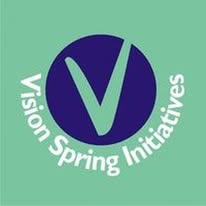N
Preamble
According to the NGOCSW 63 2019 Guidebook, nearly 5,200 Civil society members and 1,850 government delegates attended the UN commission on the Status of Women this year, making it the largest annual gathering of the international women’s movement at the UN-a time for renewal of collective purpose and action. The priority theme for CSW 63 is social protection systems, access to public services and sustainable infrastructure for gender equality and the empowerment of women and girls. According to the UN Women, social protection is a set of minimum guarantees, including basic income security for children, working-age adults, older people and people with disabilities, as well as essential health care for all.

Opening remarks at the CSW 63
H.E. Ambassador Geraldine Byrne Nason chair of CSW 63 in her opening remark said that women have been systematically marginalized, ignored and silenced in a male dominated world with a male dominated culture. She noted that patriarchal roots in Western culture help explain deep power imbalances stating that she believes that same applies to other regions of the world. She referred to a cartoon of a group of executives sitting around a conference table – all men, one lone woman. The woman has just made an important point – followed by a long pause. In the cartoon, finally, the boss pipes up and says “that’s an excellent suggestion, Ms. Triggs. Perhaps one of the men here would like to make it.” She stated that she suspects that many of the delegates would have had such experience.
Continuing her remarks she noted the need to be clear about what needs to change. As Professor Beard has written:
“If women are not perceived to be fully within the structures of power, surely it is power we need to redefine rather than women.”
She thanked all the delegates for leading change and for raising their voices from various countries and continents, stating that everyone is needed here, now and more than ever before. She further stated that our world today needs direction and she hoped that participants will help guide the way. She expressed concern that though people are more connected, yet societies are becoming more fragmented, with challenges such as climate change, insecurity, ongoing uphill battle for reproductive rights – terrible endemic sexual and gender-based violence, conflict which in her view more than ever before require global responses.
The UN Secretary General Antonio Guterres in his remark on March 12 noted that the environment is not friendly to women and girls. He said women and girls still face sexual harassment due to power relations and imbalance, According to him, victims of sexual harassment become double victims when they report violence, stating that this must stop. He commended 60 heads of states that are currently champions to end violence and harassment, stating that peace and security is critical in ending all forms of violence against women. He noted that conflict is high and also a question of power, regretting that while many countries are moving forward with regards to making legislations, some are moving backwards, incidences of hate speech, female genital mutilation still persist. Vision Spring Initiatives noted the following suggestions as the role of civil society groups:
- Strengthen ties between feminists and women’s movement within the UN.
- Build stronger intergenerational dialogue with partnerships.
- Transform the culture of inequality culture of unsustainable development and culture of violence.
- Develop statistics on violence and stereotypes and use this information to challenge the status quo.
Moving forward the following suggestions were mentioned as role of government:
- Support NGO parallel report on Beijing and CEDAW
- Develop strategies to strengthen ties between UN and critical social movement in equating SDG and peace
- Create online opportunities for feminists and women’s journalisms, arts and culture
- Bring the global to local e.g. cities for CEDAW
The following was suggested on how NGOs take action:
- Mobilise around national NGO parallel reports to present to governments
- Hold public events in Beijing and CEDAW in schools and communities
- Create intergenerational events during 2019 and 2020
Writing of parallel report by NGOs
- Need to ensure universal ratification of CEDAW and implementation
- In 2030 prioritize gender equality not only on SDG 5 but ensure budgetary allocation, adequate monitoring and establishment of specific gender machinery
- Address inequalities find solutions and have data disaggregated by sex
- Address structural inequalities and impediments, including legislations, tackle root causes of inequality and build skills for achieving equality
- Establish meaningful partnership by all and not just women
- Invest in gender equality-have it stated in national budgets laws and policies and financed by the government for change to happen.
All the deliberations agreed that change was happening incrementally, but governments need to accelerate actions for the achievements of the rights of women and girls and implementation of the Sustainable Development Goals.
Vision Spring Initiatives is currently reviewing the Concluding remarks towards partnering with strategic stakeholders.
